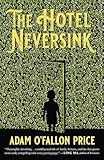Here is a secret about writers, or at least most writers I know, including me: we don’t like to read our published work. Conversations I’ve had over the years with author friends have tended to confirm my own feelings on the matter—namely, that it is very nice and fortunate and rewarding to get something published, but you don’t ever especially want to read it again. One reason for this is the fact that, by the time you’ve finished revising, copyediting, and proofreading a book, you have already reread it effectively a hundred million times before publication. Another reason: there is something deeply nerve-wracking about the fact of the thing you’ve written, mutable for so long, now being fixed and frozen forever, with no possibility of rewriting whatever mistakes you might—and will—find upon rereading. Among the countless, loving tributes in the wake of her recent death, one memorable Toni Morrison anecdote recounted her habit of taking a red pencil to her published works as she read from them; Toni Morrison, of course, was one of the few authors who might have reasonably expected reprintings and possible future opportunities for correcting errata. Toni Morrison was Toni Morrison.
The rest of us have to live with the reality of what we’ve written and managed to get out in the world, and so there’s a self-protective instinct to look away from it. But when the case of author’s copies of my new novel, The Hotel Neversink, arrived—and with it, the usual reticence to crack one open—I found myself wondering about this impulse: is it good? Maybe not. A writer could go through their whole life accumulating work and publications without ever, in earnest, going back and looking at what they’ve done with a reader’s eye. And if you never revisit your old work, you may never fully understand how, or if, you’ve changed as an artist and person. With a sense of great reluctance and apprehension, I therefore decided to sit down and fully reread my first novel.
The novel in question is The Grand Tour, which I wrote from 2013 to 2014, while I was in graduate school at Cornell. I revised it over the following year, during which time I was lucky enough for it sell to Doubleday, which published it almost exactly three years ago, in August, 2016. For what it’s worth, it received good reviews from outlets like Kirkus and Publishers Weekly, and was generally well-received by readers, although not readers who were expecting an uplifting read. One of the highlights of publication came in the form of a hostile email from a very old woman telling me how much she hated my main character, Richard. And she wasn’t wrong to hate him. Richard is quite hateable. In an era of nice characters, and an ever-increasing expectation of “relatability” from readers, The Grand Tour features the kind of anti-heroic ’60s/’70s protagonist sometimes played in films by Jack Nicholson, the kind who no longer curries any cultural favor whatsoever.
But that’s the point of Richard Lazar: he doesn’t curry any favor in his fictional world, either. He is washed-up and alcoholic and socially radioactive, having lived in the desert for ten years following the collapse of his second marriage. When he receives word that his Vietnam memoir has grazed the bestseller list, he is uniquely unprepared to capitalize on this fleeting moment of success. Nonetheless, his publisher trundles him out on a promotional tour, where he meets a young fan named Vance, providing the basis for what is essentially a coming-of-age road novel, (a bildungsroadman?).
The book’s first chapter sets the tone. Richard comes to after blacking out on a flight, is rude to a flight attendant and hostile to Vance, who meets him at the airport with a homemade sign. He proceeds to get drunk before the reading, do a predictably bad job, get drunker at the faculty dinner, and hit on the Dean’s wife. As he’s driven back to his hotel room by the disillusioned Vance, he tells the kid not to bother with writing.
I knew Richard sucked, but this time around, I found myself disliking him a lot more than I did while writing or revising the novel. Richard is a version of the Unhappy White Guy protagonists I grew up reading, and that I attempted to classify in this essay. His specific lineage is the hard-drinking hard-luck variety found in books by the Southern writers I loved in my twenties: Messrs Hannah, Brown, and Crews—Barry, Larry, and Harry. Ultra-masculine, drunk and doomed, these writers and their antiheroes exerted an outsized influence on The Grand Tour. I suppose it speaks well of my personal growth that I’m less (read: not) enamored with this type of character the way I was seven years ago. In a way, this disenchantment feels healthy and generally axiomatic: books take a long time to write and publish, and perhaps they should always feel a little dusty and outmoded by the time they come out.
To the novel’s credit, I think, it is aware of Richard’s awfulness, and, to an extent, Vance’s. It is not the kind of book that misjudges its protagonist, although it might misjudge the extent to which, for a reader, the comedy of complete assholishness can justify having to spend 300 pages with a complete asshole. That said, this time around, I still found it to be a pretty funny book with lots of amusing passages, for instance this one, describing Richard’s purchase of a house in foreclosure after the 2008 real estate bubble:
[His advance] was enough, as it turned out, to buy a nearby house in foreclosure, in a superexurban neighborhood called The Bluffs. There was no bluff visible in the landscape, so perhaps the name referred to the cavalier attitude local banks and homeowners had taken toward the adjustable-rate mortgages that subsequently emptied the neighborhood. It turned out they were giving the things away—all you had to do was show up at auction with a roll of quarters and a ballpoint pen.
Horrible or not, Richard is a successfully drawn character, if one with many problematic antecedents. Vance is drawn convincingly, as well, although his chapters feel slightly less successful to me, simply for the fact that he’s a less funny character. He’s nineteen, stuck at home, depressed and painfully earnest—in other words, the perfect earnest foil for Richard’s cynical lout. This odd couple set-up does feel formulaic, although it also works, as formulas tend to do. Formulaic, as well, though less successfully so, are a clutch of chapters representing Richard’s memoir in the book. On a reread, the appearance of these Vietnam chapters felt somewhat unwelcome to me, and not just because of being typeset in italics. They lean a little too heavily on skin-deep source material like Full Metal Jacket and The Things They Carried. Here comes the gregarious, rebellious grunt. There goes the gruff sergeant and patrician lieutenant. I did do some actual research about troop movements and munitions and local geography, but the whole thing feels a bit stale, though maybe any Vietnam story published in 2016 would.
What does not feel stale at all this time around is the introduction of a third perspective, Richard’s estranged daughter, Cindy, a casino croupier and malcontent, who takes over the middle third of the book. On this read, Cindy strikes me as the most successful aspect of The Grand Tour. She’s the most original character, and she structurally provides respite from the bad male behavior that otherwise dominates the proceedings. Richard and Vance are, after all, two sides of the same coin, i.e. the coin of male ego and its attendant problems. That Vance’s ego is subdued and wounded makes it no less irritating.
The novel’s awareness of these men as problematic and tiresome, and the section in which Cindy more or less destroys them—Vance sexually, Richard emotionally—elevates (I hope) the book above similar novels that simply find their male hero’s antics fascinating. Cindy makes her gleeful exit, disappearing into a street fair crowd, in one of the novel’s most memorable passages:
The Friday-night crowd swelled around her as she neared downtown—in front of the façade of a large art deco building, a stage was set up on which a bunch of paunchy white dudes mangled “Whipping Post.” People pushed past and she rejoiced in it, becoming part of the throng, the multitude … she wondered what someone watching her from above, looking at her face, might think. Would they know anything, be able to divine something about her, her life, or her mistakes? No. No one knows anything about anyone, she thought, and for the second time that day was struck by the feeling that she could start over—that nothing, in fact, would be easier. Denver, why not? She dragged her suitcase into the hot jostle, for the moment immensely pleased.
The remainder of the novel (SPOILER) finds Vance getting sent to Riker’s Island (!) and all of Richard’s proverbial chickens coming home to roost. A lot happens in these last chapters, probably too much. This is, I think, an unavoidable function or symptom of the book itself trying to do too much. One thing that struck me on this reading is just how much there is going on. It’s a common feature of the debut novel, in which an author takes decades of reading and thinking about novels and compresses it all into their first try, as though it will also be their last. Some of it works here, and some of it doesn’t. If I were to give critical advice to the person who wrote this, I might tell him to think about losing at least one of the component parts—maybe the Vietnam sections—and to also not feel like he has to conclude all of the proceedings with quite such a bang. The tour, I might suggest, could end on a more muted note. The final pages do manage this quietness, and it’s a relief after the sound and fury that precede them.
All of which is to say, I think it’s… pretty good? It’s entertaining and funny, and the writing is solid and sometimes excellent. That sounds like an unreliable claim, given my obvious bias, but would it convince a reader of my objectivity if I also say that I found the book to be weirdly old-fashioned and in certain places very contrived? Ultimately, it’s an uneven novel held together by its humor and prose. I believe if I hadn’t written The Grand Tour and had just happened across it, I would have finished and enjoyed it, with reservations. And if I’d written a review, I might have been generous with this first-time author, adding to everything I’ve said here that I looked forward to what he comes up with next.
Image credit: Unsplash/Rey Seven.













